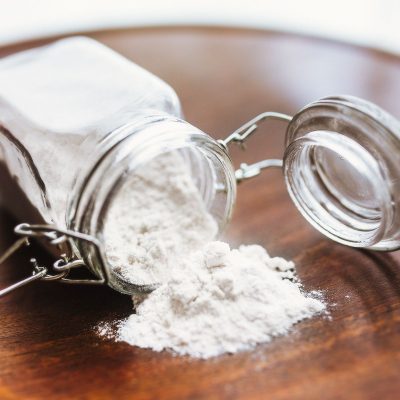
Let me start by disclosing that I never had the courage to try this method. I decided to treat my symptoms and my osteopath’s opinion as binding. However, I know people who have tried this method and I will not hesitate to use their opinions 😀
The matter is quite simple – baking soda is an alkaline compound that will cause a turbulent reaction after contact with a strong acid, so if there is a strong acid in the stomach, it will produce gas, and as a result… a burp.
Here’s how to perform the burp test:
1. dissolve 1 teaspoon of fresh baking soda in a glass of water,
2. drink the solution on an empty stomach in the morning,
3. measure the time from drinking to burping.
Test result:
0 – 40 seconds -> hyperacidity (apparently a very rare thing)
40 – 90 seconds – > normal stomach acidity
2 – 3 minutes – > too high stomach pH
5 minutes and longer -> do you digest at all???
Our Wisest Paediatrician told us about someone who, having drunk the mixture in the morning, burped only in the evening. Very bad.
You might want to repeat this test at least once more the next morning because the results may sometimes vary, but we can assume that if there is no gas within the first few minutes, digestion is severely impaired.
Okay, so your result was terrible. You have a severely underacidified stomach. What now?
In his book ‘Your Body’s Many Cries for Water’ Dr. Batmanghelidj beautifully describes the process of producing gastric juices, which in a nutshell looks like this:
1. to produce acid, the stomach needs about one glass of water and if it does not have it, it will take water from the blood, which will thicken as a consequence and raise the pressure.
So high blood pressure can be a symptom of chronic dehydration.
Since the body will not hesitate to take some of the water from the brain to use it for the critical digestive process, migraines can also be a symptom of chronic dehydration.
2. However, before the stomach fills up with acid, the mucous layer inside should first swell and cover itself with mucus that protects it from acid – without water, the mucous layer will not become as thick as it should and will not be covered by as much mucus as is necessary to protect the layer from the most corrosive acid in the world.
This means that in a dehydrated body, there is a much higher risk of mucosal damage, erosions and stomach ulcers.
So before you reach for salt, vinegar or Betaine HCL to acidify your stomach, start drinking water to regenerate the mucosa.
It is important to drink highly mineralized water (or water with a small amount of good salt), especially before meals, e.g. a glass of water 20-30 minutes before a meal, and to avoid products that increase the pH, e.g. bee pollen, alkaline water.
After some time, when consuming a protein meal, you can start adding things to this water such as raw vinegar, salt or Betaine HCL with pepsin, as a last resort. Then acidification should take place more smoothly.
Anyway, with a severely underacidified stomach, you simply can’t drink vinegar because your stomach hurts or you feel sick.
First, give the mucosa a chance to heal, then acidify the stomach.
If you suffer from heartburn and suspect hyperacidity, but you did not burp during the test, you can conclude that your heartburn is caused by the lack of acid, not its excess. If food floats for hours in your stomach that has an almost neutral pH, all sorts of things will happen inside it. In such a state, taking antacids is a crime against your own body!
Oh, and I would like people to stop talking about deacidification of the body. You do not deacidify your body – different organs work at different pH, deacidification of the stomach will be like shooting yourself in the foot, and the blood, for example, has such a minimal margin of deviation that it only takes a small abnormality to almost send us into a coma.
Thank you for your attention. We will revisit this topic in the future.
In the meantime, read my post about how I discovered that I was digesting badly: https://anna-bee.com/en/blog/hidden-digestive-problems-or-what-is-vinegar-for/
Natural home made vinegar based on honey is available here

 Polski
Polski